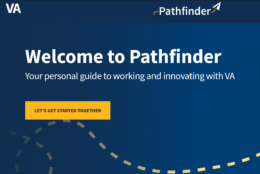Acquisition
-
Moshe Schwartz, president of Etherton and Associates, dug deeper into the three pillars that make up national security, and how the COVID-19 pandemic and inflation have reshaped our nation’s thinking about them.
July 01, 2022 -
Best listening experience is on Chrome, Firefox or Safari. Subscribe to Federal Drive’s daily audio interviews on Apple Podcasts or PodcastOne. It’s an old question. An agency awards a services contract because of specific people the contractor promised…
June 29, 2022 -
The House Armed Services committee spent time last week marking up the defense authorization bill for 2023. As always, the NDAA has a lot to say about procurement and contractors. But it doesn't say anything about whether they're compensated for inflation.
June 28, 2022 -
Category management is one major influence that has contributed to the decline of the small business contractor ecosystem. Now, the Small Business Administration is taking steps to begin that reform.
June 27, 2022 -
The General Services Administration is spending nearly all of its efforts towards the idea of customer experience. That's what Federal Acquisition Commissioner Tom Howder told the coalition for government procurement the other day What does that mean for contractors?
June 22, 2022 -
GAO says it seen some improvement and DOD is management of major acquisitions, but the cost and schedule growth are still big problems. And while every program is unique, one common theme is that DOD tends to commit itself to big systems before it has enough information about technology risks and cost estimates,
June 22, 2022 -
Moshe Schwartz, president of Etherton and Associates, joins host Roger Waldron on this week's Off the Shelf to discuss The Slow Destruction of the Defense Industrial Base, a report Schwartz co-authored with Michelle Johnson from the Naval Postgraduate School.
June 22, 2022 -
The General Services Administration expects to release the draft RFP in early 2023 with the final one coming by March 2023.
June 21, 2022 -
The Air Force is exploring multiple options to ensure the service gets the products it wants and helps industry where it is struggling along the way. The war in Ukraine, supply chain shortages, COVID and inflation are all throwing a wrench in pricing and contracting.
June 16, 2022 -
The Space Force organization is trying to avoid reinventing the wheel by buying technologies already developed by business.
June 14, 2022 -
The Defense Department is evaluating its own processes with an eye toward making it easier for small companies to provide innovative solutions.
June 14, 2022 -
In addition to providing a one-stop shop for contractors, VA is trying to build a culture of transparency on the IT side, in order to make it easier for vendors to integrate solutions.
June 13, 2022 -
Despite a lot of uncertainty in the broader economy, contractors have at least a somewhat optimistic view about the federal market. That’s thanks, in part, to a big influx of federal spending initiatives since the start of the pandemic. But vendors still see big challenges on the horizon, including increased competition and new demands to comply with federal regulatory requirements.
June 10, 2022 -
Mike Madsen, the deputy director of Defense Innovation Unit, said his organization in 2021 published 26 solicitations for commercial solutions for which it received 1,100 proposals. The solicitations on average received 43 proposals each.
June 10, 2022 -
When the government establishes a mandated source of supply, that means there's no way around it. That's what the Defense Logistics Agency found when it issued a solicitation for body armor parts.
June 08, 2022















